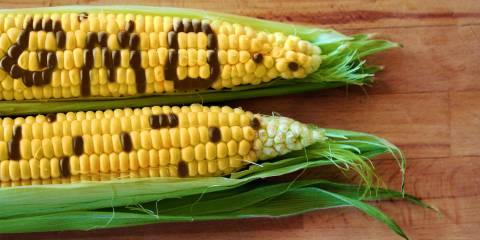The bulk of the human diet is comprised of grains, and wheat is by far the most popular. Per capita wheat consumption exceeds that of any other single food staple in the U.S. It’s no wonder when you consider all the pastas, breads, and cereals that line natural products store shelves and kitchen cabinets. This grain’s popularity is further enhanced by the fact that it can be easily transported, stored, and processed into many of the foods we consume.
Why Organic?
Since wheat and other grains are so common, it makes sense to support organic varieties. Organically grown foods are often higher in nutrients than their conventional counterparts.
Organic production uses biological pest control instead of pesticides. By contrast, conventionally grown grains and flours are fumigated not only in storage but also in transit. Organic grains use alternative methods and more complex shipping schedules to ensure a fresh and untainted product. Choosing organic grains also lowers the risk of contamination from mycotoxins—secondary metabolites produced by fungi that can cause mild to severe effects on health.
Dangers of Genetic Modification
The process of genetic engineering or genetic modification (GM for short) inserts genes from one organism into another. Corn and soybeans have been subjected to this procedure, and now wheat is being targeted as a GM crop.
The rationale to genetically modify wheat is to make it more drought, pest, and mildew resistant. But the matter isn't this simple. GM is an unproven technology with little scientific data addressing possible long-term effects on human and environmental health. Some scientists suspect that persons ingesting GM foods risk developing new allergies, an inability to absorb vitamins and minerals, and resistance to antibiotics.
Organic farmers face a very real threat of cross-contamination between GM crops and organic crops through genetic drift. Already GM corn, soybean, and canola crops have genetically contaminated neighboring crops.
Efforts by some organic consumer groups have helped to halt the plans for genetically modified wheat, for now at least. In the future, though, things may change. The Swiss company Syngenta is preparing to introduce what will be the world’s first genetically modified wheat seed as early as the next decade.
The majority of American consumers support labeling genetically modified foods. But the only current guarantee that a food is not genetically engineered is the organic label.
Important Choice for the Environment
Organic is an important choice for the environment, too.
When grains are organically grown, farming methods emphasize the health and fertility of the soil since organic agriculture allows no synthetic pesticides, herbicides, or fertilizers.
Plus, organic production uses biological pest control instead of pesticides.




